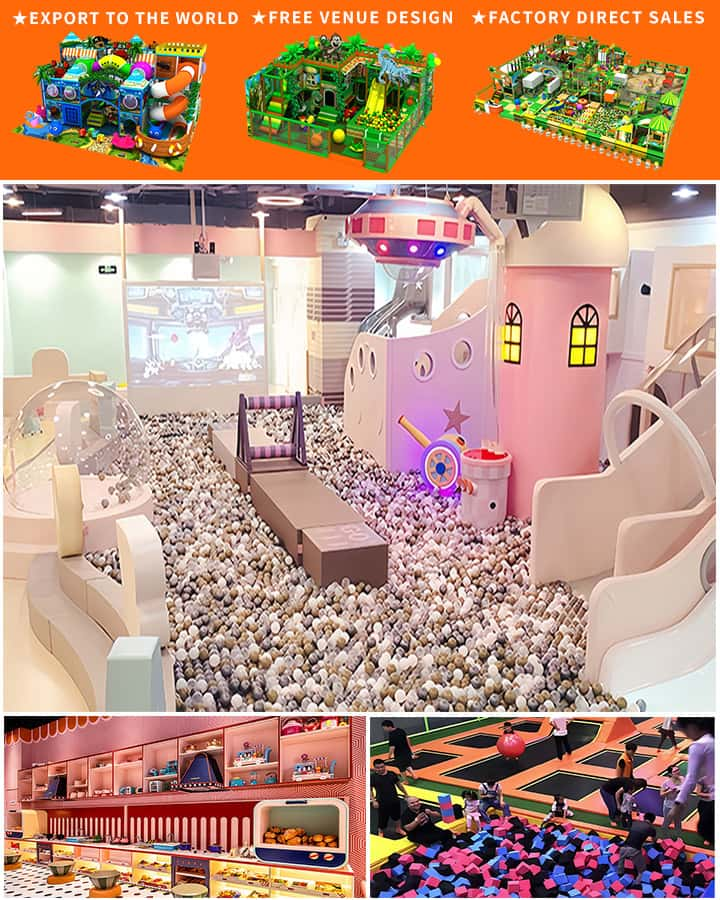Starting an indoor kids’ play area business can be a rewarding venture, blending entrepreneurial spirit with the joy of providing a safe and entertaining environment for children. With careful planning and strategic execution, your business can become a go-to destination for families in your community. Here’s a comprehensive guide to help you navigate the process from conceptualization to launch.
Market Research & Planning
Identify Your Target Market
Understanding your target demographic is crucial. Consider factors such as age groups, parental preferences, and local demand. Conduct surveys or focus groups to gather insights into what parents and children are looking for in an indoor play area.
Competitive Analysis
Analyze existing competitors in your area. Visit their facilities, understand their offerings, pricing, and customer feedback. Identifying gaps in the market will help you differentiate your business.
Location & Space Requirements
Choose a location that is easily accessible and convenient for your target audience. Ensure the space meets your needs for various play structures, seating areas for parents, and amenities like restrooms and refreshment stands.
Designing the Play Area
Safety First
The safety of children is paramount. Ensure all play equipment is age-appropriate and installed according to safety standards. Regular inspections and maintenance routines should be established to keep the facility secure.

Variety of Activities
Diversity in activities helps attract a broader range of children. Consider including climbing walls, ball pits, slides, interactive games, arts and crafts stations, and quiet zones for reading or resting. Tailor the selection to different age groups to ensure inclusivity.
Themed Areas
Incorporate themed sections to enhance appeal and engagement. Ideas include pirate ships, fairy gardens, or space adventures. Themes not only stimulate creativity but also provide a unique selling point for your business.
Operational Planning
Staffing Requirements
Hire friendly and responsible staff who enjoy working with children. Background checks and training in child safety protocols are essential. Having a sufficient number of staff ensures smooth operation and provides adequate supervision.
Pricing Strategy
Develop a pricing model that balances affordability with profitability. Options may include entry tickets, timed sessions, and membership plans. Offering discounts for bulk purchases or birthday parties can boost revenue.
Marketing Plan
Utilize both online and offline marketing strategies to reach potential customers. Social media platforms, local parenting blogs, and community events are excellent channels for promotion. Word of mouth from satisfied customers can significantly impact growth.
Legal & Financial Considerations
Licensing & Permits
Ensure compliance with local zoning laws, health regulations, and business licensing requirements. This might involve obtaining specific permits for operating an indoor play area.
Insurance
Secure comprehensive insurance coverage to protect against liabilities. Policies should cover property damage, liability claims, and worker’s compensation.
Budgeting & Funding
Create a detailed budget covering startup costs such as leasing or purchasing space, play equipment, staff salaries, and marketing expenses. Explore funding options through personal savings, loans, or investors.
Grand Opening & Ongoing Success
Promotional Events
Host a grand opening event with special promotions, giveaways, and free trials to attract initial customers. Engaging with local schools, daycares, and community centers can generate steady traffic.
Customer Feedback & Adaptation
Continuously seek feedback from visitors to make necessary improvements. Adapting based on customer input ensures ongoing satisfaction and loyalty.
Community Engagement
Building relationships within the community strengthens your brand’s presence. Partner with local organizations for events or sponsorships, and participate in community service projects to foster goodwill.
Starting an indoor kids’ play area business requires meticulous planning and dedication, but the joy of seeing children have fun and the satisfaction of creating a valuable community resource make it worthwhile. By focusing on safety, variety, and customer experience, your indoor play area can thrive and bring smiles to many young faces.




